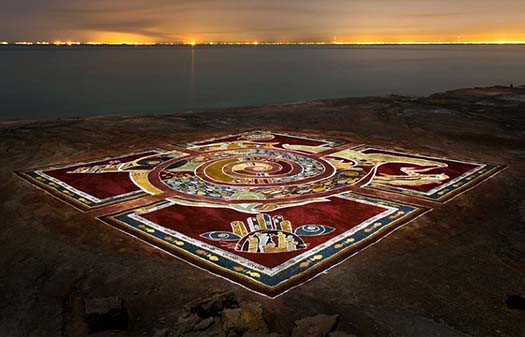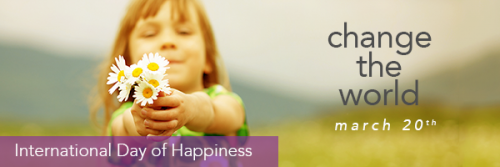- Details
- Written by: Kamran Mofid
- Hits: 3340

Photo: bultannews.com
“This giant carpet is woven with soil on the body of the mythical great fish that sails through various seas and oceans to take the message of peace and friendship from the Iranian people to people of different colours, races and faiths all over the world.”
This carpet is 1,600 square meters in size, and is made by local artists with the help of some artists from all over Iran, and it contains eighty different colours and shades, with a message of “global peace”. The design of the carpet is inspired by local myths of Hormozgan province about a very large fish called “Damahi” that lived in the waters of the Persian Gulf and at times of need came to the assistance of the people of the region. Different patterns of the carpet are also based on the four elements, water, wind, soil and fire, which are represented in the four corners of the carpet.
- Details
- Written by: Kamran Mofid
- Hits: 9095
"When we contribute to the common good, we ourselves are enriched. Compassion promotes happiness and will help build the future we want”

Photo: great-images.org
In 2012, the United Nations (UN) declared March 20 to be observed as the International Day of Happiness
Happiness…can change the world
March 20 marks the United Nations International Day of Happiness. The Kingdom of Bhutan, known for adopting Gross National Happiness as a measurement of its people’s prosperity, started the initiative for a day devoted to happiness. All 193 UN member states then adopted the resolution creating a day to inspire action for a happier world. On the first celebration of the Day, in 2013, UN Secretary-General Ban Ki-moon said, “let us reinforce our commitment to inclusive and sustainable human development and renew our pledge to help others. When we contribute to the common good, we ourselves are enriched. Compassion promotes happiness and will help build the future we want.”
- Details
- Written by: Kamran Mofid
- Hits: 2947

Photo:twing.com
Tony Benn, a pivotal figure in British leftwing politics in the second half of the 20th century, who renounced his title in order to become a parliamentarian, died today (Friday 14 March 2014) at home at the age of 88. Benn was a principled campaigner and articulate statesman. He was a visionary leader, a courageous voice for justice and a clear moral compass, respected by many- friends and foes alike.
Benn's activism, which included going to Iraq in the runup to the US/UK invasion in an attempt to forestall war, was tireless, inspired and inspiring. At the time when the world has been hijacked by the false ideology of neo-liberalism, Benn, more than ever, will be very much missed.- “Doctors, are obsessed with the causes of disease rather than the causes of "wellness": Sir Harry Burns
- No mathematical model can describe ‘the world as it really is’
- London: The capital of inequality, loads of money and greed
- Moving from moral to legal wrong: Polly Higgins
- Cradle of god: Spirituality in the Land of the Noble
